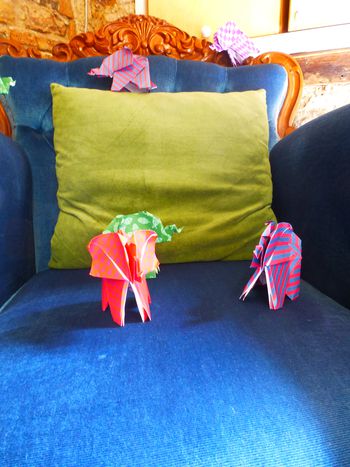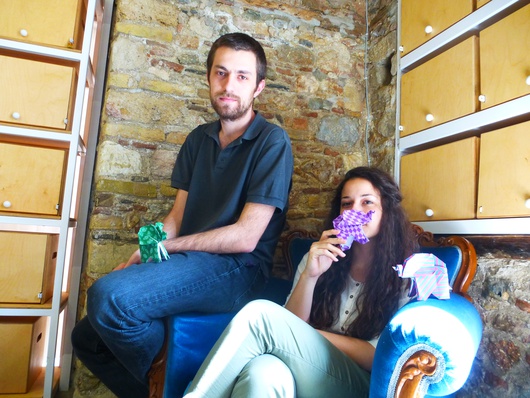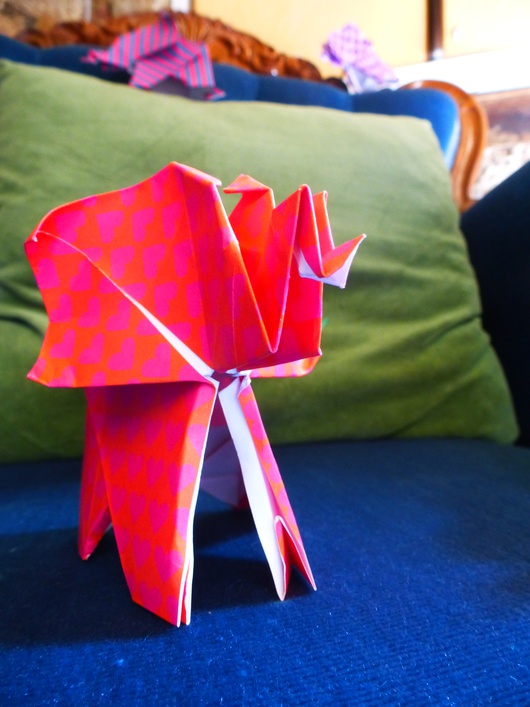
"Solomon" means integration to Greek society through a magazine!
Published on
Meet the first multicultural Greek online magazine, whose editors are coming from Afghanistan, Belarus, Greece, Pakistan, Russia and Somalia.
The last two years refugee crisis is on every media headline. According to their agenda, every media outlet presents the ongoing crisis from a different prespective. Some media like the French “Liberation”, published editions produced entirely by Syrian journalists, photographers and writers. In Greece the ongoing flows of refugees and immigrants gave birth to “Solomon”, the first magazine in the country in which the majority of editors are not Greeks. The editorial team is consisted of people from Afghanistan, Belarus, Greece, Pakistan, Russia and Somalia! The multicultural magazine is digital and the content is both in English and Greek. It started its operation with seven people of different origins and backgrounds and now it’s consisting of more than 23 members.
I met Fanis Kollias, magazine’s initiator and Roza Vassilatu who serves as the Editor in Chief. We discussed about the challenges and “Solomon”'s goal which according to the team is to “encouraging refugees, immigrants and locals to join the co-shaping of society through free expression of their views, ideas and skills”.
Q. How did the idea of “Solomon” came up and how was your team formed?
Fanis: During October 2015, we founded “Refugees Welcome Greece” and through this initiative I met a refugee from Afghanistan who is living the last nine years in Greece. He was in need for a place, and while we were discussing we realised that creative people, educative people who now happen to be immigrants or refugees have no access to interesting projects. This particular person works as a chef. He was telling me how many things he would like to do and participate in, but his social circle is limited to the Afghanis community. His problem was that he didn’t had a clue, to whom he could talk to. So as I had a media background, I came up with the idea to create a magazine.
Initially, the idea was that the editors would be only refugees, but that proved to be wrong. I talked about my idea to my friend Rosa who is a journalist. She loved it and we agreed to set up a magazine written by refugees which should reffer to refugees too. So we asked ourselves? What do we need? Refugees, was the answer. We came in contact with the Greek Forum of Refugees which put us in contact with Nadir from Afghanistan and Hassan from Somalia. Nadir loves photography and he is the one in charge for magazine's pictures. The next step was to get in touch with “Melisa”, an NGO for women immigrants. That’s how we met Nonna from Belarus and Anna from Russia. Both are working for a Russian newspaper. Our last member is Khan. We met him here in Impact Hub Athens. He is working on an app which provides the right information to refugees coming in Greece. He also used to had a blog in Urdu, where he was translating news about Greece. All the members speak Greek and the every day communication is also done in Greek.
Q. Why the initial idea was wrong?
Fanis: We decided to create a digital magazine because we already had the background. I was working for six years in media industry, and also did Rosa. We didn’t look for a gap to fill in. As a first step we thought that refugees need to express themselves, to be able to be heard. But if you don’t speak with them you really don’t know their needs. Their real need was the interaction with the locals. To build a common ground to work together. They didn’t like the idea of Greek people setting up a magazine which will be run by them. In Western civilization we tend to think that we are more civilized than others and for instance we could civilize all these people who coming from Middle East. This kind of thinking by default underestimates them and doesn’t help to their integration. So Anna, Khan, Hassan, Nonna and Nadir helped us to find it out. Since then, “Solomon’s” philosophy is that there are no superheroes! We work together and we have set up something for the whole society. Not only for refugees. Because, at the end of the day, integration is an issue that concerns everybody.
Rosa: That’s why “Solomon” is addressed to local people, refugees, everyone.
 Q. What is the content of “Solomon”?
Q. What is the content of “Solomon”?
Fanis: “Solomon’s” content is divided in two parts. The first part is referring to Greece through the eyes of our editors. The idea behind is that people should be aware that being a refugee doesn’t mean that you can only talk about refugee crisis or immigration. For example, Anna’s column is about social economy. Khan and Nadir are working as mediators for NGO’s so they are writing about refugees. This is their everyday life. Nonna is writing about culture, so her column does not refer to refugees. The second part of our content is to present cultures of other countries. Hassan is in charge of this. We include this because integration doesn’t mean host country’s culture adoption. When a Somali or an Afghan is coming to Greece, that doesn’t means that she/he has to forget about her/his own culture and adopt the Greek one. We want to learn more about their cultures.
Q. Did your different culture backgrounds caused any problems among the team?
Fanis: It was impossible to complete the first meetings. Back then, we didn’t know how "Solomon" would look like and what role each of us would have. Every time, one of the guys was bringing something from his/her country. Once, Anna came with a “samovar”; an electronic device for tee. That meeting was never completed. Seriously speaking, the only problems we face is that sometimes things need to be repeated again and again. Even if we all speak the same language. But now we are all aware of that problem.
Q. Is “Solomon” profitable?
Fanis: “Solomon” was financed with my last salary from my previous job. Before the magazine got published, we run out of money. We are npw online for six months. The profit is minimum. But who made money out of a magazine? For the first issue we charged a minimum price (1,5€) for each download. It didn’t work so the second issue was for free. We are now only asking for donations. Greeks are not used of digital payments. People are afraid to pay online.
 Q. What are your plans for the future?
Q. What are your plans for the future?
Fanis: As we say “Solomon” is encouraging the interaction with locals, refugees and immigrants through the free expression of their views, ideas and skills. The views are expressed through the magazine. Next step is to put ideas and skills into practise. For example; Hassan is a chef. Nadir is a mediator and a photographer. Khan is a programmer. We can use their skills, beyond the magazine. We have in mind a future project related to multicultural cuisine. How we could mix Greek with Somali cuisine for istance.
Rosa: Regarding the magazine, we will maintain the existing columns. At the same time we work constantly on new ideas. Each editor has many new proposals regarding "Solomon"'s content. We always discuss and we want to flesh it out with more “elements”. We want to be more interactive with our readers.
Q. Could “Solomon” play a positive role to refugee crisis?
Fanis: I will answer by saying the following; every time we have a volunteer who want to help us with the magazine we ask why that person would like to be part of it. There was a girl who said something very interesting. She said that all of us, are aware of the refugee crisis. We read, watch and listen to bad news every day. And then “Solomon” came and brought good news regarding refugees and immigrants. Personally, I think “Solomon” offers an alternative perspective on the topic so people can see the other side of the coin.
Rosa: I believe that “Solomon” is like a traveling; when you travel you realize that you are not alone in this planet. It helps you understand that you shouldn’t be afraid of diversity. People are used to criticize whatever seems strange to them, only because they are not familiar with it.
Fanis: Triggered by what Rosa said, I would say that you can be open to other cultures only by meeting people from other countries in your own country. For example, I have never traveled abroad but by meeting people from other countries and talking about their lives, it’s like I do have traveled.
* “Solomon”'s title originates from the main character of the book "The Elephant's Journey" by the Portuguese author Jose Saramago. The book tells the story of Solomon, an elephant who does not speak with words but only with actions. Read more about “Solomon” here



